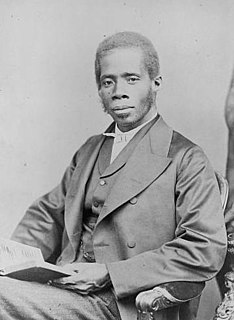A Quote by Ivor Grattan-Guinness
It [ non-Euclidean geometry ] would be ranked among the most famous achievements of the entire [nineteenth] century, but up to 1860 the interest was rather slight.
Related Quotes
Given that the nineteenth century was the century of Socialism, of Liberalism, and of Democracy, it does not necessarily follow that the twentieth century must also be a century of Socialism, Liberalism and Democracy: political doctrines pass, but humanity remains, and it may rather be expected that this will be a century of authority ... a century of Fascism. For if the nineteenth century was a century of individualism it may be expected that this will be the century of collectivism and hence the century of the State.
The classical theorists resemble Euclidean geometers in a non-Euclidean world who, discovering that in experience straight lines apparently parallel often meet, rebuke the lines for not keeping straight as the only remedy for the unfortunate collisions which are occurring. Yet, in truth, there is no remedy except to throw over the axiom of parallels and to work out a non-Euclidean geometry.
Kepler's discovery would not have been possible without the doctrine of conics. Now contemporaries of Kepler-such penetrating minds as Descartes and Pascal-were abandoning the study of geometry ... because they said it was so UTTERLY USELESS. There was the future of the human race almost trembling in the balance; for had not the geometry of conic sections already been worked out in large measure, and had their opinion that only sciences apparently useful ought to be pursued, the nineteenth century would have had none of those characters which distinguish it from the ancien régime.
Development of Western science is based on two great achievements: the invention of the formal logical system (in Euclidean geometry) by the Greek philosophers, and the discovery of the possibility to find out causal relationships by systematic experiment (during the Renaissance). In my opinion, one has not to be astonished that the Chinese sages have not made these steps. The astonishing thing is that these discoveries were made at all.
Most of what I read is for reviewing purposes or related to something I want to write about. It's slightly utilitarian. I definitely miss that sense of being a disinterested reader who's reading purely for the pleasure of imagining his way into emotional situations and vividly realized scenes in nineteenth-century France or late nineteenth-century Russia.
The fame thing is interesting because I never wanted to be famous, and I never dreamt I would be famous. You know, my fantasy of being a famous writer, and again there's a slight disconnect with reality which happens a lot with me. I imagined being a famous writer would be like being like Jane Austen.
But then, Cap'n Crunch in a flake form would be suicidal madness; it would last about as long, when immersed in milk, as snowflakes sifting down into a deep fryer. No, the cereal engineers at General Mills had to find a shape that would minimize surface area, and, as some sort of compromise between the sphere that is dictated by Euclidean geometry and whatever sunken treasure related shapes that the cereal aestheticians were probably clamoring for, they came up with this hard-to-pin-down striated pillow formation.
A strange effect of marriage, such as the nineteenth century has made it! The boredom of married life inevitably destroys love, when love has preceded marriage. And yet, as a philosopher has observed, it speedily brings about, among people who are rich enough not to have to work, an intense boredom with all quiet forms of enjoyment. And it is only dried up hearts, among women, that it does not predispose to love.































